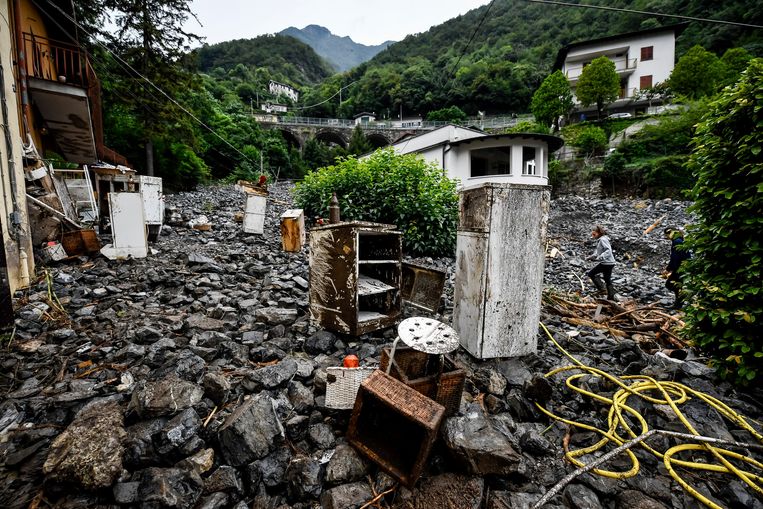After eight years of waiting, a new version of the Intergovernmental Panel on Climate Change report from the United Nations Climate Panel will be published tomorrow, listing the scientific case for global warming. It doesn’t paint a pretty picture.
According to Alok Sharma, the British minister who will lead the COP26 climate summit in Glasgow in November, the new IPCC report is “the most serious warning that human behavior is accelerating global warming at an alarming rate”. According to Brit, the consequences of the climate crisis are already being felt in floods in China and Europe, and record temperatures and wildfires in North America.
Making available all scientific knowledge about climate change. To this end, the Intergovernmental Panel on Climate Change (IPCC) was established by the United Nations in 1988. This is the sixth time that the Intergovernmental Panel on Climate Change has issued a major climate report. This last happened in 2013.
The Intergovernmental Panel on Climate Change divides its main climate reports into three parts. Part one on the “hard science” of climate change will be published on Monday, and another part will be published in 2022 on the consequences of climate change for people, a report on how to reduce our emissions and a summary paper.
It is no coincidence that the IPCC only publishes a new report every seven years: each report is preceded by a long process. The first volume alone covers over 1,500 pages to which more than two hundred writers have contributed. The first version of the report was published by 750 Expert reviewers Proofreading: They submitted over 23,000 comments, which were then proofread and processed. The second version is corrected by both experts and governments. The coronavirus pandemic has slowed the whole process down a bit.
extreme weather
Compared to the previous report, more attention is being paid to how the Earth is dealing with the climate crisis. For example, this report takes a closer look at how the Earth and the atmosphere would interact if fewer greenhouse gases were released into it. What is also new is that the Intergovernmental Panel on Climate Change (IPCC) is paying much more attention to how climate change will feel differently for each region of the world.
The report also shows more clearly than ever how climate change is causing extreme weather events such as heat waves and torrential rainfall. Both extreme weather events have become more frequent since the 1950s, leaving little doubt that humans are largely responsible for them. With each half degree of warming, the chance of torrential rains, prolonged drought and heat waves – which we tasted last month – increases even more.

The IPCC has been criticized in previous reports for not paying enough attention to so-called “tipping points”: critical thresholds that, once we reach, cause many cascading effects that further worsen climate disruption. The new report also touches on this in more detail. For example, thawing permafrost in the Arctic is known to release methane, accelerating global warming.
In May, scientists warned that some Greenland ice sheets were approaching this tipping point. Amazon is also at risk. Due to deforestation and global warming, certain parts of the forest are already emitting more carbon dioxide2 out then pick up. Scientists have shown that we are getting closer and closer to the point where the Amazon rainforest can no longer produce enough rain to sustain itself, turning the forest into a savannah and releasing tons of carbon dioxide.2 He will be released. Thus, the summary of the IPCC report, which AFP was able to read, looks very ominous: “The worst is yet to come, and it affects the lives of our children and grandchildren, much more than the lives of our children.”

“Lifelong food practitioner. Zombie geek. Explorer. Reader. Subtly charming gamer. Entrepreneur. Devoted analyst.”











More Stories
Revealing the ten countries that support Ukraine the most
Funny protest against mass tourism in Galician village
Kamala Harris has wind in her sails, but Trump can still win